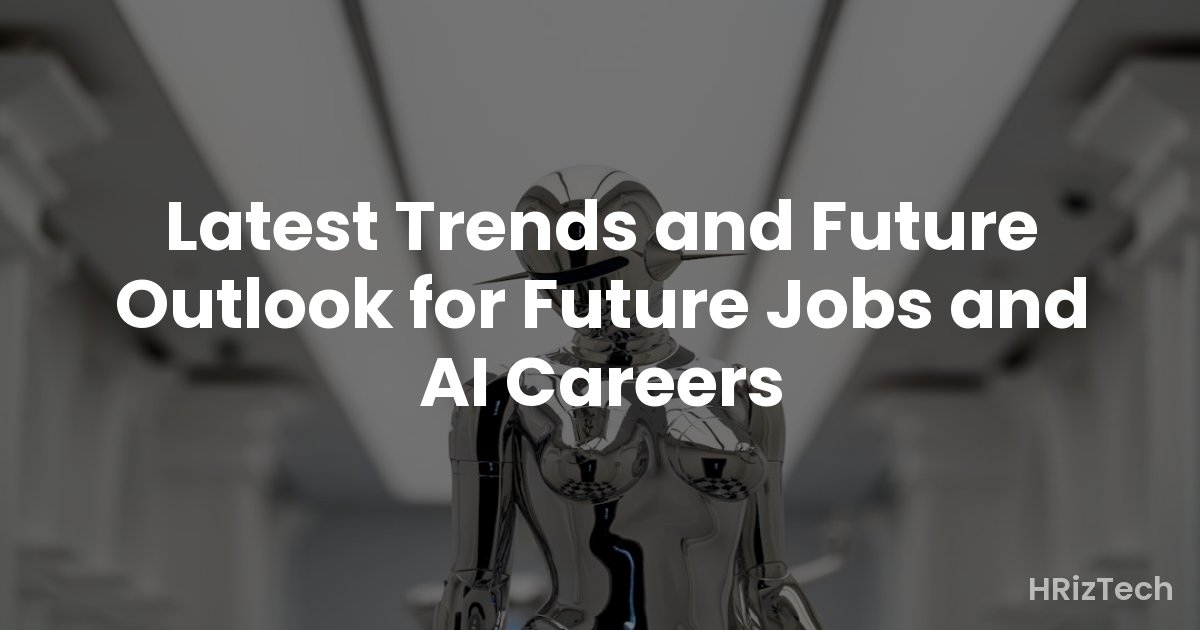Latest Trends and Future Outlook for Future Jobs and AI Careers

Latest Trends and Future Outlook for Future Jobs and AI Careers
- AI is rapidly transforming the job market, creating new roles and altering existing ones.
- Upskilling and reskilling are crucial for navigating this evolving landscape.
- Collaboration between humans and AI will be key to future success.
- Ethical considerations surrounding AI in the workplace are paramount.
- The future of work will be characterized by flexibility and remote opportunities.
The Rise of AI-Driven Roles
Artificial intelligence (AI) is no longer a futuristic concept; it's reshaping industries and creating a surge in demand for specialized roles. From machine learning engineers and data scientists to AI ethicists and prompt engineers, the job market is teeming with opportunities for those with the right skills. The rapid advancement of AI technologies like generative AI and large language models (LLMs) is further accelerating this trend, demanding professionals who can build, implement, and manage these powerful systems. This isn't just about technical expertise; it also requires individuals who understand the ethical implications and societal impact of AI.
Emerging AI-Related Job Titles
While traditional IT roles remain crucial, we're seeing the emergence of entirely new job titles. Consider the role of a "Prompt Engineer," responsible for crafting effective prompts to elicit desired outputs from AI models. This requires a deep understanding of how LLMs work and the ability to articulate complex tasks in a way that the AI can understand. Similarly, "AI Trainers" are increasingly in demand, responsible for training and fine-tuning AI models to perform specific tasks. These roles highlight the evolving nature of work in the age of AI – it's not just about building the technology, but also about effectively interacting with it and maximizing its potential.
The Impact of AI on Existing Professions
AI's influence extends beyond the creation of new roles; it's also transforming existing professions. Many jobs will be augmented by AI, meaning that AI will assist humans in performing their tasks more efficiently. For example, doctors can use AI-powered diagnostic tools to improve accuracy and speed, while lawyers can leverage AI to research legal precedents more effectively. This collaborative approach will be crucial for future success, requiring professionals to adapt and learn how to work alongside AI.
Adapting to the Changing Landscape
The key to thriving in this evolving job market is adaptability. Continuous learning and upskilling are no longer optional; they're essential. Professionals need to acquire new skills to complement their existing expertise and learn how to effectively utilize AI tools in their work. This might involve taking online courses, attending workshops, or pursuing further education to stay ahead of the curve. The ability to learn quickly and adapt to new technologies will be a highly sought-after skill in the years to come.
Ethical Considerations in AI
The rapid advancement of AI also raises important ethical concerns. Issues such as bias in algorithms, data privacy, and the potential for job displacement need careful consideration. The role of "AI Ethicists" is becoming increasingly important, ensuring that AI systems are developed and deployed responsibly. Companies are increasingly prioritizing ethical AI practices, recognizing that responsible innovation is crucial for building trust and maintaining a positive social impact.
PHP Code Examples: AI Integration
Integrating AI into existing systems often involves interacting with APIs. Here are two simple examples showcasing PHP's capabilities in this domain:
Remember to replace placeholder API keys and URLs with your actual credentials.
The Future of Work: Flexibility and Remote Opportunities
The future of work is likely to be characterized by increased flexibility and remote work opportunities. AI-powered tools are enabling remote collaboration and communication, breaking down geographical barriers and allowing for more diverse and inclusive workforces. This trend is likely to continue, offering employees greater autonomy and work-life balance.
Key Takeaways and Conclusion
The intersection of AI and the job market is dynamic and ever-evolving. Embracing continuous learning, adapting to new technologies, and understanding the ethical implications of AI will be crucial for navigating this landscape successfully. The future of work is collaborative, flexible, and heavily reliant on human-AI synergy. The opportunities are vast, but those who proactively adapt and upskill will be best positioned for success.
What are your thoughts on the biggest challenges and opportunities presented by the integration of AI in the workplace?
Comments
No comments yet. Be the first to comment!